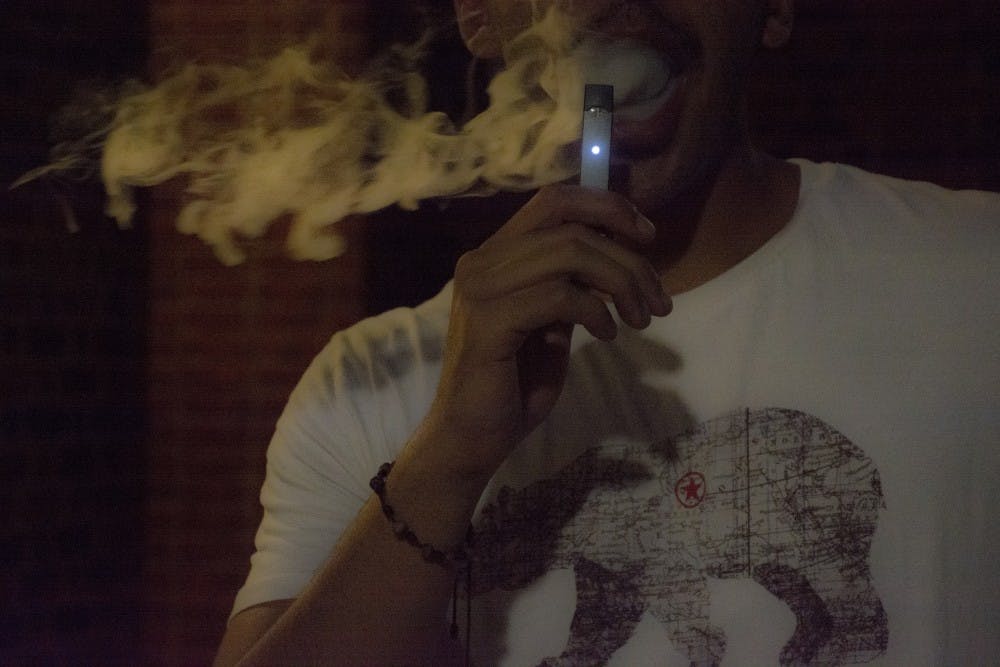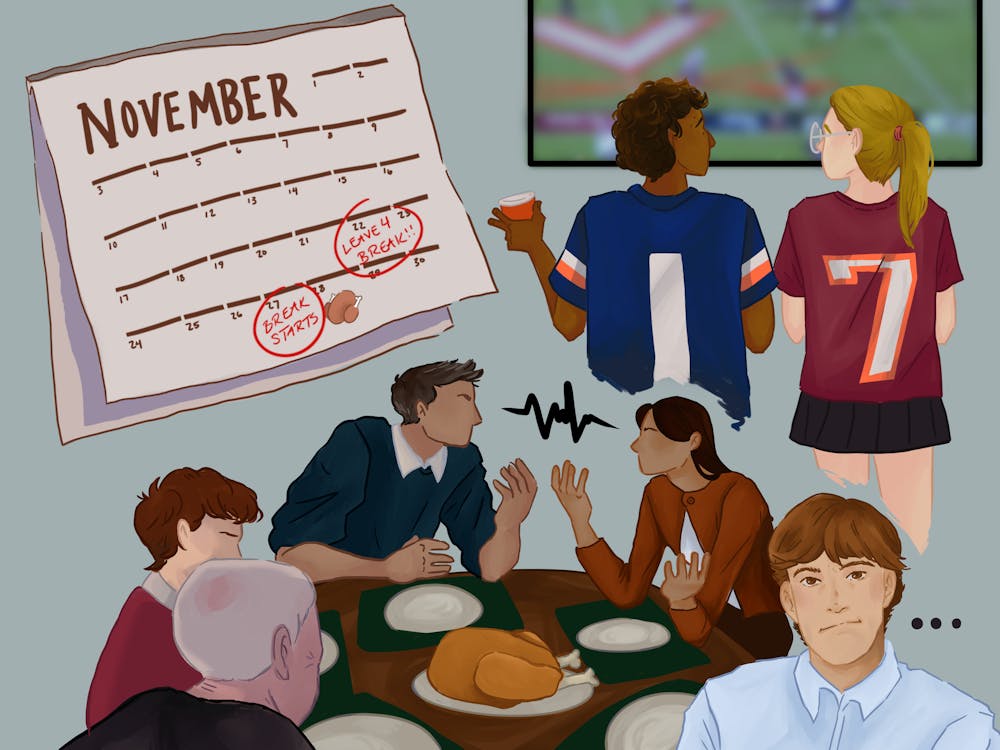In February, Virginia Gov. Ralph Northam enacted legislation banning those under age 21 from buying tobacco and nicotine products in the state of Virginia. The law — intended to address what U.S. Surgeon General Jerome Adams deemed the youth vaping epidemic — went into effect July 1.
To accord with the new law, the University changed its alcohol and drug policy to prohibit underage tobacco and nicotine product usage, noting that those who do not comply may be referred to University authorities. University spokesperson Wes Hester added that the University Judiciary Committee will also investigate and adjudicate reports of underage tobacco use under its 12 Standards of Conduct.
Specifically, UJC will pursue sanctions under Standard 6 — violation of University policies as referenced in The Record — or Standard 10 — violation of federal, state or local law. The Record is an online repository of student-related policies and procedures. During the 2017-2018 term, these were the most violated standards of conduct, which mostly comprised of cases of underrage drinking and obtaining fake IDs.
Shannon Cason, fourth-year College student and chair of the UJC, explained that UJC has been working to educate students on the law in the same way it informs students of penalties for underage alcohol use.
“It’s something that a lot of people might not be aware of as it is very, very new,” Cason said.
Soon, Cason will meet with Tommye Sutton, chief of the University Police Department, to discuss how UPD intends to enforce the legal tobacco age.
Cason noted that although the UJC plans to take underage tobacco use seriously, the organization will retain its focus on alcohol and drug usage.
“Our main focus and priority still, and will continue to be, the issues with drinking as well as any marijuana issues that are going on around Grounds,” Cason said.
According to Cason, UJC has not worked alongside Housing and Residence life to educate students on the changed legal age for tobacco use. However, Marsh Pattie, assistant vice president of student affairs, said resident advisors were made aware of the updated University policies during their training, prior to the arrival of new residents.
Andy Petters, Director of Residence Life, said in an email to the Cavalier Daily that RAs plan to treat underage tobacco use as they would alcohol — by asking the resident to dispose of the contraband. HRL also instructed RAs to inform residents that underage use of tobacco could spell sanctions from the UJC, like a reflective essay or community service.
Joshua Fogel, a second-year College student living in Bond House, told The Cavalier Daily that his RA did not inform him of the policy change — instead, he learned about the law from friends. Meanwhile, Sydney Seligman, a second-year College student living in the Lambeth Field Apartments, said her RA outlined the updated University policy during a hall meeting.
“He said that in terms of living in the U.Va. residence halls, it’s best to not do it at all even if you are over the age of 21 because it makes it difficult because so many people are underage here,” Seligman said.
Within the University community, about one fifth of students reported vaping in the last month — a statistic on par with the 22 percent of high school seniors who report the same.
While cigarette usage has been on the decline in the United States, e-cigarettes — first introduced in the U.S. in 2006 — have risen in popularity, especially among youth. By 2014, e-cigarettes had become the most popular nicotine-delivery product among youth.
Launched in 2015, JUUL, a pod-based e-cigarette, has become an ordinary sight everywhere from high school bathrooms to college libraries. The nicotine content in a single JUUL pod, which contains five percent strength, is equivalent to a pack of 20 cigarettes.
JUUL’s ubiquity has been met with widespread concern from doctors and parents as well as swift government regulation — most recently in Michigan, Virginia and Texas. In November 2018, JUUL stopped selling fruit-flavored pods in retail locations at the request of the Food and Drug Administration.
As localities grapple with the apparent vaping epidemic, an August press release from the Blue Ridge Poison Center at UVA Health warned of nearly 100 cases nationally of lung illnesses that appear to be linked to vaping. The release added that many patients reported using vaping devices with vape liquids that included THC, the active ingredient in marijuana.
Although the risks involved with vaping are yet to be concretely determined, Tia Mann, associate director of the Office for Health Promotion, estimates that researchers will know more about the damage within the next few decades.
“Research on vaping is in its infancy,” Mann said. “Long-term risks are going to take awhile to determine.”
Students struggling with nicotine addiction may still seek help with tobacco cessation from the Student Health Center, regardless of their age.





